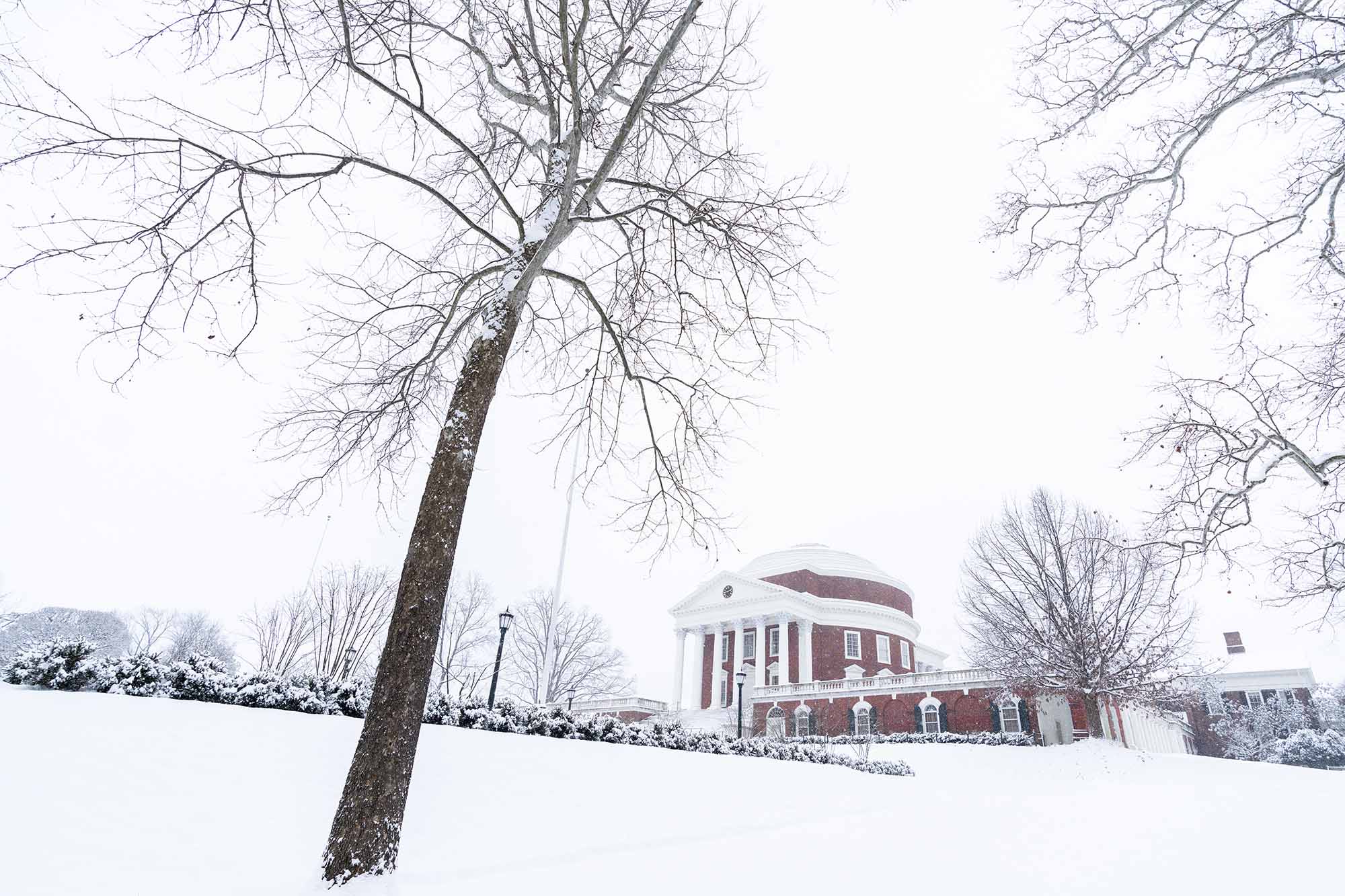After 10 days of enhanced public health measures, the University of Virginia saw a measurable decline in positive COVID-19 cases, allowing University leaders to ease some of those restrictions Friday while keeping other limits in place.
The day after President Jim Ryan and his leadership team implemented enhanced restrictions on Feb. 16, UVA registered 229 new COVID-19 cases, its highest daily total of the year by far.
However, after 10 days of stricter measures – including a ban on all in-person social gatherings and closing libraries and recreational facilities – cases significantly declined and on Thursday, the University registered 26 new cases. Similarly, the seven-day average positivity rate of cases within the UVA community dropped from a high of 4.41% to 2.29% across the UVA community.

In response to these positive trends and in consultation with a team of public health experts, led by Dr. Costi Sifri, the director of hospital epidemiology at UVA Health, and Dr. Mitch Rosner, Henry Mulholland Professor of Medicine and chair of UVA’s Department of Medicine, University leaders eased some restrictions on Friday, including:
- Effective immediately, the University gathering policy will return to a limit of six individuals, with a strong emphasis on encouraging people to stick to “pods” or “bubbles.” Indoor dining will be limited to groups of two, including in dining halls, because indoor dining with larger groups has been a significant source of transmission.
- Effective immediately, policies requiring students to remain in their residences except for specific purposes have been lifted. Students are free to resume normal activity while observing all health and safety guidelines.
- Effective Saturday at 10 a.m., University IM-Rec facilities will reopen with the same modified operational status used at the beginning of the semester. University libraries will also open under conditions similar to those that were in place at the beginning of the semester.
- Out of concern for spreading the virus into the surrounding Charlottesville community, the University will continue to limit community volunteering activity until further notice, with one exception. Students who volunteer as emergency medical technicians or firefighters and who have been vaccinated can resume their volunteer activities.
- All other University health and safety guidelines, including restrictions on visitors and travel, remain in effect.
“These changes are good news, and a clear indication of how seriously members of our community, particularly our students, are taking the enhanced public health measures,” Ryan and his leadership team wrote in an email message to the University community on Friday, signed by Ryan, Provost Liz Magill, Executive Vice President and Chief Operating Officer J.J. Davis and Executive Vice President for Health Affairs Dr. K. Craig Kent.
“We are grateful for your effort and your sacrifices in this important moment for our University. However, it would be a mistake to interpret [the changes] as a sign that we are out of the woods. The only thing preventing another spike in cases and a return to more restrictive measures is our commitment, as a community and as individuals, to remain vigilant and faithfully follow the public health measures we have in place.”
Contact tracing identified indoor dining as a higher-risk activity, prompting leaders to restrict indoor dining to two people. Outdoor dining is limited to six people, provided social distancing is observed.
The leaders also said that sticking to pods or bubbles “may be among the most important things we can do as a community to keep COVID at bay.”
“Socializing with a small group of people and limiting contact with people outside that group reduces the spread of the virus,” they wrote. “Bouncing from one group of six to another puts people in both groups at risk.”
Ryan and his leadership team closed by thanking students for their efforts to comply with the more restrictive measures, acknowledging that they asked a lot.
“We know his period has been really difficult, particularly for our students. But the sacrifices you’ve made over the past 10 days are making our community safer,” they wrote. “We have demonstrated the ability to do the right things to limit the spread of the virus. If we stay on this path and case counts continue to fall, it will soon be safe to further increase the size of gatherings so that we can all have the most rewarding semester possible together on Grounds. Thank you for your patience through this challenging period and for doing your part to get our semester back on track.”
Media Contact
Article Information
February 26, 2021
/content/uva-ease-restrictions-after-significant-decline-covid-19-cases

